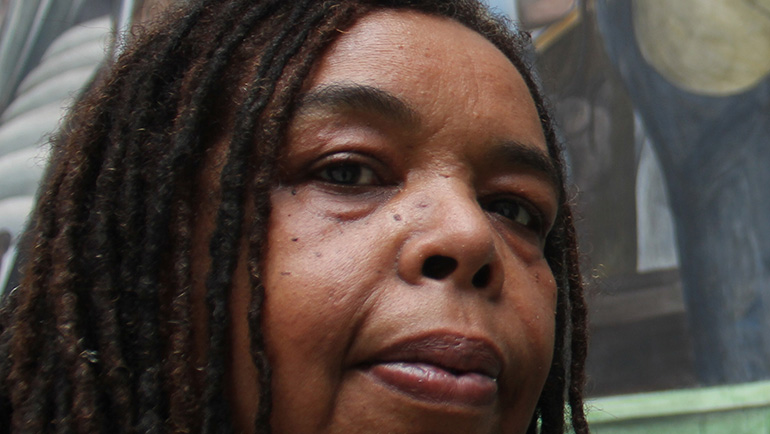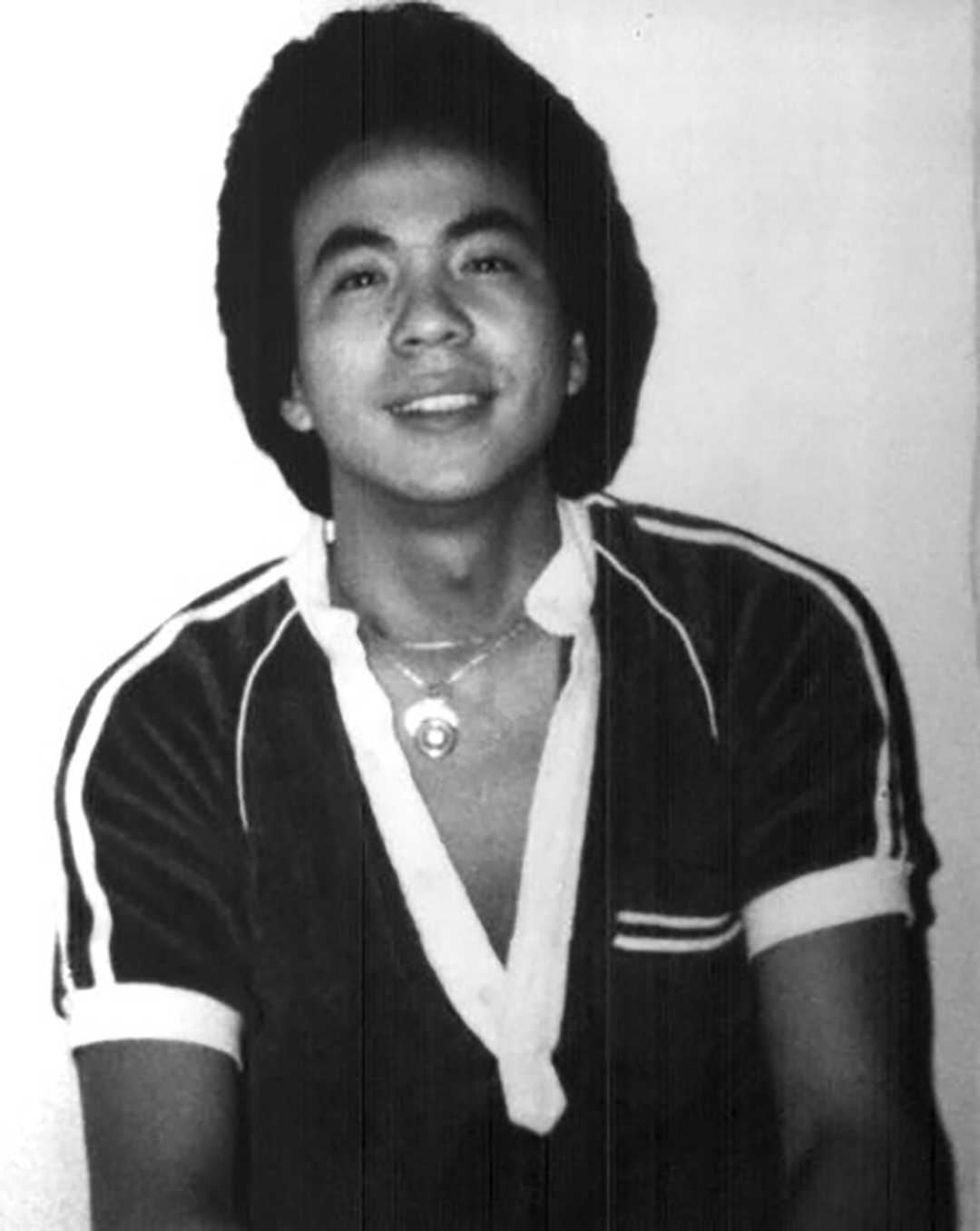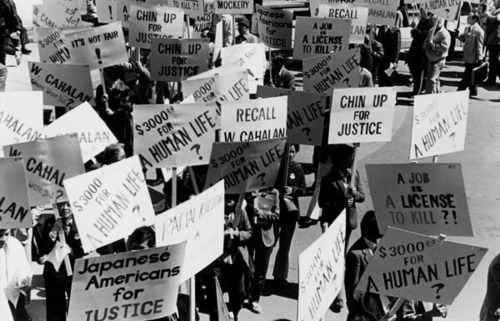
More than three decades ago, Juanita Anderson, the head of the media arts and studies area in Wayne State University’s Department of Communication, missed out on an Oscar as executive producer of the documentary Who Killed Vincent Chin? which delved into the brutal, now-infamous murder of a Chinese American engineering draftsman in Detroit — but she saw the film win several other awards.
Now, 40 years after Chin’s tragic death, Anderson and her work are again earning acclaim.

Late last year, Who Killed Vincent Chin? landed on the National Film Registry, a catalog of the country’s most important films. Months later, Anderson was named to the board of directors of American Documentary, Inc. (AmDoc), a national nonprofit media arts organization that works closely with filmmakers to support independent documentaries. AmDoc is also behind the successful documentary series POV — which actually aired the Vincent Chin documentary in 1989, as the premiere of its second season.
With the recent observation of the 40th anniversary of Chin’s death, Who Killed Vincent Chin? has also seen a sudden revival, with news stories focusing on Anderson’s work with filmmakers Christine Choy and Renee Tajima-Peña, and public broadcasting stations across the country airing the film in remembrance of Chin and to further discussion about race and the criminal justice system.
“I feel honored,” Anderson said about her board appointment and the resurgent interest in her acclaimed film project. “It is a tremendous honor to have my contributions as a producer, filmmaker, educator and curator recognized and valued by a major documentary organization.
Decades of experience drive that value, according to Anderson.
“As somebody who has really been in the trenches since the mid-1970s in public media,” she said, “I bring this historical memory to what has happened, in the places I’ve worked but also in the national landscape.”
In that same spirit, Anderson has taken her appointment to the AmDoc board as well as the renewed interest in Who Killed Vincent Chin? — which earned a Peabody Award as well as the Alfred I. duPont-Columbia University Silver Baton — as opportunities to advance both AmDoc as an institution and the critical importance of documentaries as art and tools for social change.
“American Documentary has a long history of putting forth independent documentary on public television and out into the world,” Anderson said in a recent interview.
A decades-long fixture in documentary filmmaking circles, Anderson served as a representative to the POV editorial committee in the early 1990s while working in Boston and helped foster POV’s evolution and further embrace of diversity, partly by promoting controversial-but-brilliant works like Tongues Untied, which explored Black gay identity.
“I’ve been in the trenches for a long time,” she said, “fighting these battles about who gets to tell our stories. In the case of Vincent Chin, it was of the utmost importance to me that the story reflected the voices of Detroit’s Asian American community, and that it be told through the lens of Asian American filmmakers.”
The success of the Chin documentary stands, of course, as the most decorated example of her commitment to storytelling. Chin was 27 years old when he was fatally beaten with a bat by two white autoworkers following a brawl that occurred as Chin celebrated his bachelor party with friends in Highland Park. The incident underscored how anti-Asian racism fed economic anxieties in Detroit in the 1980s as American carmakers began to see their popularity and sales erode as Japanese imports gained ground in domestic markets. Chin’s killers, Ronald Ebens and Michael Nitz, allegedly blamed Chin for the woes of the American auto industry.
The tragedy was further compounded when Ebens and Nitz — both of whom had pleaded guilty to manslaughter — were sentenced only to probation and a fine of less than $4,000. The outrage that resulted from the killing and light sentences is generally believed to have sparked increased Asian American involvement in social justice movements.

In 1987, more than five years after Chin’s slaying, the 87-minute Who Killed Vincent Chin? directed by Choy and Tajima-Peña and executive produced by Anderson, was completed.
The film helped spotlight the work of filmmakers of color and marked a major step forward in terms of diversity. Still, Anderson also noted that multicultural coteries of documentarians have always existed even if many are only now breaking through.
“We’re in a period where stories that stem from often-marginalized communities or ignored communities are becoming more visible on screens,” she said. “And it’s not that those stories have not been told — because there have been documentary filmmakers in the trenches that have been working with their communities for decades, multiple decades. I think back about the legacy of William Greaves, for example, who was executive producer of Black Journal back in 1968. You can name this whole treasure trove of national treasures who were black documentary filmmakers.”
But now, voices that were once muted are being amplified. Anderson credits POV with evolving further to meet the increasing demands of diverse audiences and auteurs.
“POV has made tremendous strides in terms of the range of diversity and voices that are reflected on staff,” she said. “I also think that where I have seen POV specifically evolve is in terms of looking at the world of independently produced documentary and really being at the vanguard of what’s going on, particularly with contemporary issue documentary that looks at human beings, human experience and character-driven experiences in ways sometimes that more news-oriented documentaries can’t do.”
Anderson hopes that the evolution in documentary filmmaking as well as within the institutions that support the genre is a sign of increasing support for independent filmmakers across the board.
“Hopefully, this time becomes one of pivotal change so that when Black, brown and indigenous filmmakers have stories that need funding, the question is not, ‘Do they have the experience to do them?’” she said, “but ‘How do we support them?’”
And as her rise to even greater prominence continues, Anderson figures to be among those providing the answers.